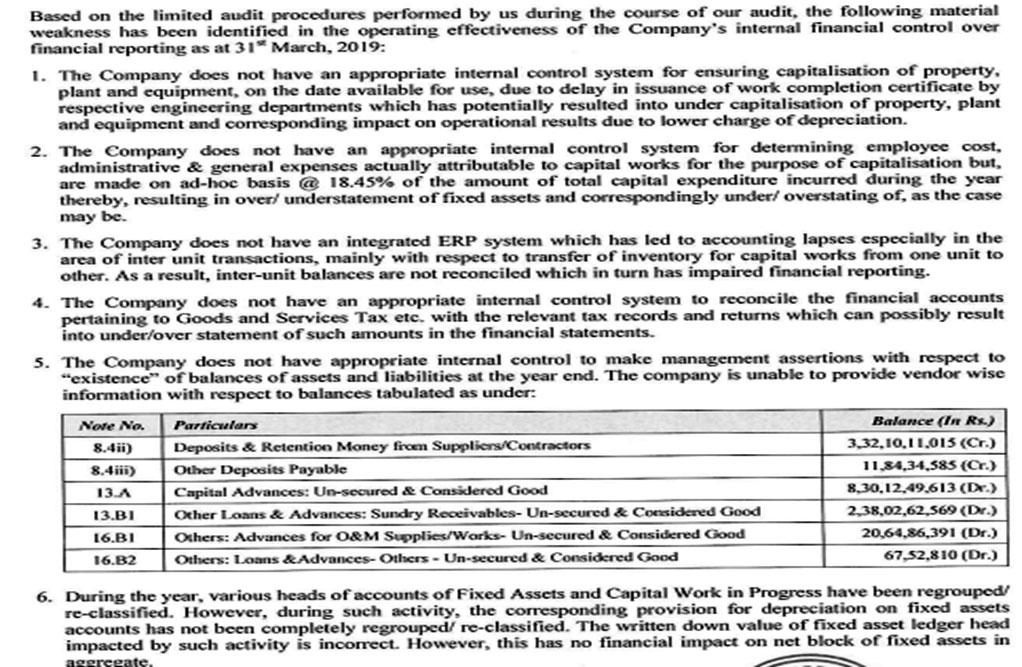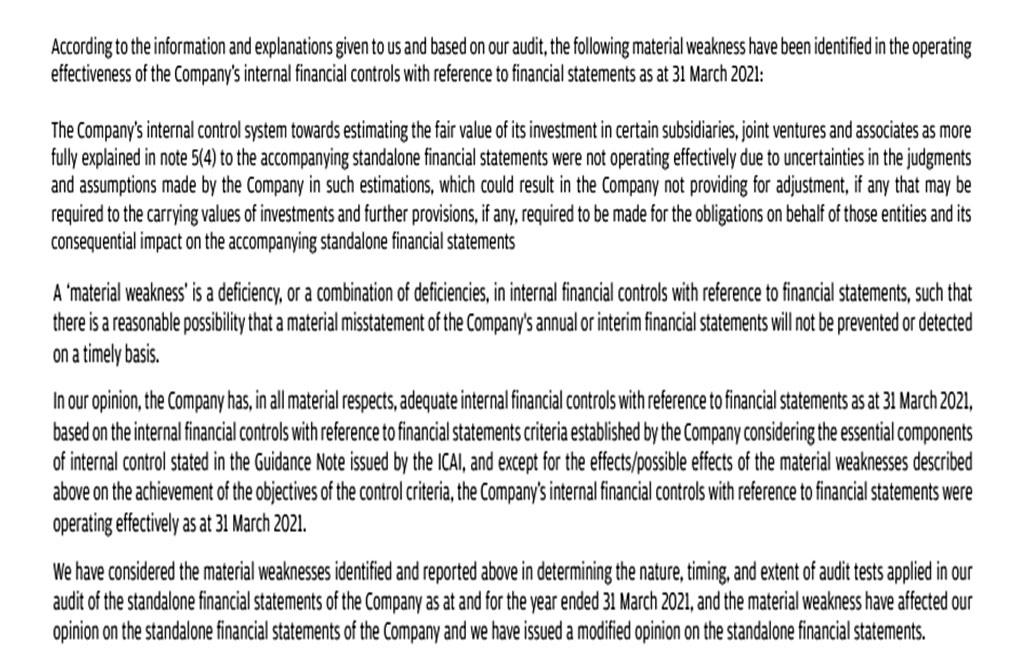








In the current global business landscape, maintaining robust internal controls and conducting thorough internal audits are vital to ensuring compliance, protecting assets, and sustaining investor confidence. This article delves into how effective internal controls, complemented by internal audits, strengthen corporate governance and operational efficiency.
Internal controls are the policies, procedures, systems, and processes that a company puts in place to ensure its business operations are conducted orderly and efficiently. These controls extend beyond financial oversight to cover operational aspects, safeguarding assets, preventing fraud, maintaining accurate records, and producing reliable financial and management information. As outlined in SA 315 (Identifying and Assessing the Risk of Material Misstatement), internal controls provide reasonable assurance that a company will achieve its financial reporting, operational efficiency, asset protection, and regulatory compliance objectives.
Under the Companies Act, 2013, the Board of Directors establishes and maintains effective internal financial controls (IFCs). Section 134(5)(e) mandates that the directors of listed companies include a statement confirming that adequate and effective IFCs are in place.
Effective IFCs are crucial for ensuring reliable financial reporting and the preparation of accurate financial statements. If material weaknesses are identified, the company’s controls are considered ineffective, increasing the likelihood of errors or misstatements, even if the financial statements are not materially misstated. This makes it essential for auditors to gather sufficient evidence to determine material weaknesses, focusing on high-risk areas.
The components of internal control are:
• Control Environment
• Risk Assessment
• Control Activities
• Information System and Communication
• Monitoring
Internal audits are instrumental in enhancing the effectiveness of a company’s internal controls. By continuously evaluating the control systems, internal audits help identify deficiencies and suggest improvements to ensure adherence to policies, reduce the risk of fraud, and enhance operational efficiency.
• Increased Size and Complexity of Businesses – As companies grow, management oversight over various functions becomes diluted. Internal audits provide the necessary checks and balances, ensuring operations align with the company’s goals. For Example, A multinational corporation with decentralised operations requires internal audits to review compliance and operational efficiency across different regions.
• Enhanced Compliance Requirements – With the globalisation of business, companies must comply with various international and domestic regulations. Internal audits ensure adherence to these requirements and protect companies from legal risks. For Example, A company expanding into new markets may face varying tax laws and regulations. An internal audit can ensure compliance with each region’s legal requirements.
• Risk Management and Internal Controls – Internal audits focus on high-risk areas, providing value by identifying potential issues before they escalate. This enhances overall efficiency and strengthens risk management. For Example, An internal audit of an e-commerce company reveals vulnerabilities in its payment processing system, enabling the timely implementation of more robust cybersecurity measures.
• Unconventional Business Models – Adopting unconventional business models, such as outsourcing or digital transformation, introduces new risks. Internal audits address these challenges by evaluating the effectiveness of controls in these new environments. For Example, A company that outsources its IT operations can rely on internal audits to assess the vendor’s data security protocols and service-level agreements.
• Intensive Use of Information Technology – As companies become more reliant on technology, they face increased risks of data breaches, system failures, and cyberattacks. Internal audits ensure that IT controls are robust and compliant with relevant cybersecurity regulations. For Example, An audit of a cloud-based system reveals weak password policies, prompting immediate corrective actions to prevent unauthorised access.
• Regulatory Norms and Investor Protection – Internal audits help ensure adherence to the increasingly stringent regulatory norms, especially around corporate governance and financial reporting. This helps protect investor interests and maintains market confidence. For Example, A financial services firm’s internal audit ensures compliance with the latest SEBI guidelines, preventing potential regulatory breaches.
• Competitive Business Environment – Internal audits support companies in staying competitive by identifying operational inefficiencies and suggesting improvements that lower costs and enhance productivity. For Example, An audit identifies inefficient supply chain processes, helping a manufacturing company streamline operations and reduce costs.
Certain companies are legally required to appoint an internal auditor to conduct audits at regular intervals. According to Section 138 of the Companies Act, 2013, the following entities must comply:
Listed Companies
Unlisted Companies
Private Companies
All listed companies must appoint an internal auditor.
Companies with:
• Paid-up share capital of ₹50 crore or more,
• Turnover of ₹200 crore or more,
• Loans exceeding ₹100 crore, or
• Deposits exceeding ₹25 crore.
Companies with:
• Turnover of ₹200 crore or more, or
• Loans exceeding ₹100 crore.
These companies must comply with the internal audit provisions within six months of meeting the criteria.
Deficiencies in internal control occur when a company’s policies, procedures, or systems fail to prevent or detect misstatements on time. According to SA 265, a deficiency exists if:
• A control is not designed or operated effectively to prevent, detect, and correct errors or fraud in financial statements.
• A necessary control is missing altogether.
Deficiencies in internal controls are categorised as:

• Design Deficiency – Controls are inadequately documented, or IT controls are poorly designed. For Example, A company implements new IT General Controls but fails to document them, resulting in inconsistent application across departments.
• Operating Deficiency – Controls fail during execution, such as failure in dual authorisation or management override of controls. For example, a company’s dual authorisation process for large payments is not followed due to management overriding, leading to unauthorised transactions.
• Significant Deficiency – Control weaknesses in accounting principles, antifraud measures, or period-end financial reporting. For Example, A company lacks proper anti-fraud controls, allowing for manipulation of expense reports by employees.
• Material Weakness – Serious flaws in internal audit functions, risk assessments, or fraud identification by senior management. For Example, A financial institution’s internal audit fails to detect fraudulent activities by senior management, resulting in significant financial losses.
• Deficiency related to operating effectiveness of the company’s Internal Financial control over financial reporting.

• Deficiency related to Material weakness in the operating effectiveness of the Company’s internal financial controls with reference to financial statements

Internal audits play a vital role in strengthening internal controls by continuously monitoring and assessing their design and effectiveness. By identifying deficiencies and suggesting improvements, internal audits enhance compliance and contribute to an organisation’s overall operational efficiency. Effective internal audits are essential for safeguarding assets, ensuring reliable financial reporting, and maintaining investor confidence.


Founded 1972

Launch of Taxmann Advisory for personalized consulting solutions Our Journey

Evolution From a small family business to a leading technology-oriented Publishing/Product company


Expansion

Achieve perfection, skill, and accuracy in all endeavour


Growth
Evolution into a company with strong independent divisions: Research & Editorial, Production, Sales & Marketing, and Technology

Future
Continuously providing practical solutions through Taxmann Advisory
Editorial and Research Division
Over 200 motivated legal professionals (Lawyers, Chartered Accountants, Company Secretaries)
Monitoring and processing developments in judicial, administrative, and legislative fields with unparalleled skill and accuracy
Helping businesses navigate complex tax and regulatory requirements with ease

Over 60 years of domain knowledge and trust
Technology-driven solutions for modern challenges
Ensuring perfection, skill, and accuracy in every solution provided
Income Tax
Corporate Tax Advisory
Trusts & NGO Consultancy
TDS Advisory
Global Mobility Services
Personal Taxation
Training Due Diligence
Exchange
Due Dilligence
Advisory Services
Assistance in compounding of offences
Transactions Services
Investment outside India
Transaction Advisory
Business Restructuring
Classification
Due Diligence
Training
Advisory
Trade Facilitation Measures
Corporate
Corporate Structuring
VAT Advisory
Residential Status

Naveen Wadhwa
Research and Advisory [Corporate and Personal Tax]
Chartered Accountant (All India 24th Rank)
14+ years of experience in Income tax and International Tax
Expertise across real estate, technology, publication, education, hospitality, and manufacturing sectors
Contributor to renowned media outlets on tax issues

Vinod K. Singhania Expert on Panel | Research and Advisory (Direct Tax)
Over 35 years of experience in tax laws
PhD in Corporate Economics and Legislation
Author and resource person in 800+ seminars

V.S. Datey Expert on Panel | Research and Advisory [Indirect Tax]
Holds 30+ years of experience
Engaged in consulting and training professionals on Indirect Taxation
A regular speaker at various industry forums, associations and industry workshops
Author of various books on Indirect Taxation used by professionals and Department officials

Manoj Fogla Expert on Panel | Research and Advisory [Charitable Trusts and NGOs]
Over three decades of practising experience on tax, legal and regulatory aspects of NPOs and Charitable Institutions
Law practitioner, a fellow member of the Institute of Chartered Accountants of India and also holds a Master's degree in Philosophy
PhD from Utkal University, Doctoral Research on Social Accountability Standards for NPOs
Author of several best-selling books for professionals, including the recent one titled 'Trust and NGO's Ready Reckoner' by Taxmann
Drafted publications for The Institute of Chartered Accountants of India, New Delhi, such as FAQs on GST for NPOs & FAQs on FCRA for NPOs.
Has been a faculty and resource person at various national and international forums

the UAE
Chartered Accountant (All India 36th Rank)
Has previously worked with the KPMG

S.S. Gupta Expert on Panel | Research and Advisory [Indirect Tax]
Chartered Accountant and Cost & Works Accountant
34+ Years of Experience in Indirect Taxation
Bestowed with numerous prestigious scholarships and prizes
Author of the book GST – How to Meet Your Obligations', which is widely referred to by Trade and Industry

Sudha G. Bhushan Expert on Panel | Research and Advisory [FEMA]
20+ Years of experience
Advisor to many Banks and MNCs
Experience in FDI and FEMA Advisory
Authored more than seven best-selling books
Provides training on FEMA to professionals
Experience in many sectors, including banking, fertilisers, and chemical
Has previously worked with Deloitte
Taxmann Delhi
59/32, New Rohtak Road
New Delhi – 110005 | India
Phone | 011 45562222
Email | sales@taxmann.com
Taxmann Mumbai
35, Bodke Building, Ground Floor, M.G. Road, Mulund (West), Opp. Mulund Railway Station Mumbai – 400080 | Maharashtra | India
Phone | +91 93222 47686
Email | sales.mumbai@taxmann.com
Taxmann Pune
Office No. 14, First Floor, Prestige Point, 283 Shukrwar Peth, Bajirao Road, Opp. Chinchechi Talim, Pune – 411002 | Maharashtra | India
Phone | +91 98224 11811
Email | sales.pune@taxmann.com
Taxmann Ahmedabad
7, Abhinav Arcade, Ground Floor, Pritam Nagar Paldi
Ahmedabad – 380007 | Gujarat | India
Phone: +91 99099 84900
Email: sales.ahmedabad@taxmann.com
Taxmann Hyderabad
4-1-369 Indralok Commercial Complex Shop No. 15/1 – Ground Floor, Reddy Hostel Lane Abids Hyderabad – 500001 | Telangana | India
Phone | +91 93910 41461
Email | sales.hyderabad@taxmann.com
Taxmann Chennai No. 26, 2, Rajan St, Rama Kamath Puram, T. Nagar
Chennai – 600017 | Tamil Nadu | India
Phone | +91 89390 09948
Email | sales.chennai@taxmann.com
www.taxmann.com
Taxmann Bengaluru
12/1, Nirmal Nivas, Ground Floor, 4th Cross, Gandhi Nagar
Bengaluru – 560009 | Karnataka | India
Phone | +91 99869 50066
Email | sales.bengaluru@taxmann.com
Taxmann Kolkata Nigam Centre, 155-Lenin Sarani, Wellington, 2nd Floor, Room No. 213
Kolkata – 700013 | West Bengal | India
Phone | +91 98300 71313
Email | sales.kolkata@taxmann.com
Taxmann Lucknow
House No. LIG – 4/40, Sector – H, Jankipuram Lucknow – 226021 | Uttar Pradesh | India
Phone | +91 97924 23987
Email | sales.lucknow@taxmann.com
Taxmann Bhubaneswar
Plot No. 591, Nayapalli, Near Damayanti Apartments
Bhubaneswar – 751012 | Odisha | India
Phone | +91 99370 71353
Email | sales.bhubaneswar@taxmann.com
Taxmann Guwahati
House No. 2, Samnaay Path, Sawauchi Dakshin Gaon Road
Guwahati – 781040 | Assam | India
Phone | +91 70866 24504
Email | sales.guwahati@taxmann.com